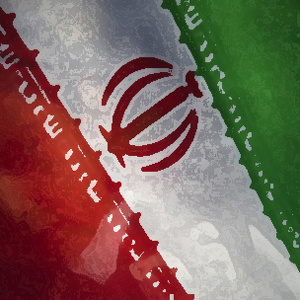The Week in Iran
Domestic politics from November 6th to November 12th, 2010.

The most important news at the beginning of the week was Lebanese PM Saad Hariri’s visit to Iran, a few weeks before the international tribunal on Rafik Hariri’s assassination releases a verdict, which will most likely trigger another round of conflict between factional Lebanese parties. According to many observers, Hariri’s visit to Tehran aimed to guarantee the existing Pax Romana in his volatile country in the post-verdict era. During his visit, the Lebanese PM promised to refrain from joining any anti-Iranian international coalition, and supported Iran’s right to the use of peaceful nuclear technology. Beside the president, Hariri also met Iran’s Supreme Leader Ayatollah Khamenei, who advised the young politician to appreciate Hezbollah and reminded him that Israel would have conquered his country if it weren’t for the Shi’a militia.
Tehran’s air pollution continued to trouble the government and citizens last week. The age old problem of the city has been aggravated during recent weeks, forcing the government to shut down public organizations one hour earlier on Saturdays and Sundays, extend the odd-even traffic rule (odd license plates on odd days, evens on even days) to all districts of the city, and to call Wednesday and Thursday days off after it had made the same decision the previous week. To make bad circumstances worse, Tehran has experienced merely a handful of rainy days this autumn, and wind has become a chimera. The air pollution crisis is also causing suffering in other major cities of the country, including Tabriz, Esfahan, and the industrial city of Arak in central Iran.
The big news of the week was the assassination attempts on two Iranian nuclear scientists on Monday: Dr. Majid Shahriari and Dr. Fereydoun Abbasi, both professors of Shahid Beheshti University of Tehran. Dr. Shahriari and his wife immediately lost their lives after bombs attached to their cars detonated, while Dr. Abbasi’s and his wife’s lives were spared and they left the scene of the attack only wounded. In his press conference on the same day, Iranian President Mahmoud Ahmadinejad accused the “Zionists” and Western governments of plotting the terrorist attacks. Hard-line newspapers ascribed the attack to British, American and Israeli intelligence services, while the UN Security Council and the IAEA were also criticized for giving away the names of Iranian nuclear scientists, thus making them an easy target for terrorists. The head of Iran’s Organization of Atomic Energy, Ali-Akbar Salehi, promised boosted security measures to protect the lives of Iranian nuclear scientists.
Ahmadinejad attended an international press conference on Monday in Tehran, answering questions ranging from domestic issues (e.g. Purposeful Subsidies) to international matters (e.g. Wikileaks). The Iranian president showed incredulity with respect to the released cables (which spoke of Arab States’ hostile attitude toward Iran), calling them a hoax to undermine Iran’s good relations with its neighbors. He also elaborated on the Purposeful Subsidies Plan, assuring reporters that it will be implemented with no problems through the collaboration of the government and citizens, adding that Fetneh perpetrators can do little to harm the country.
The first convention for Strategic Thoughts, presided over by Ayatollah Khamenei, was held on Wednesday night. The convention, which will be held regularly, aims to develop an Islamic-Iranian model for progress and “determine the path” for the country, according to Iran’s Supreme Leader.
Tehran’s air pollution continued to trouble the government and citizens last week. The age old problem of the city has been aggravated during recent weeks, forcing the government to shut down public organizations one hour earlier on Saturdays and Sundays, extend the odd-even traffic rule (odd license plates on odd days, evens on even days) to all districts of the city, and to call Wednesday and Thursday days off after it had made the same decision the previous week. To make bad circumstances worse, Tehran has experienced merely a handful of rainy days this autumn, and wind has become a chimera. The air pollution crisis is also causing suffering in other major cities of the country, including Tabriz, Esfahan, and the industrial city of Arak in central Iran.
The big news of the week was the assassination attempts on two Iranian nuclear scientists on Monday: Dr. Majid Shahriari and Dr. Fereydoun Abbasi, both professors of Shahid Beheshti University of Tehran. Dr. Shahriari and his wife immediately lost their lives after bombs attached to their cars detonated, while Dr. Abbasi’s and his wife’s lives were spared and they left the scene of the attack only wounded. In his press conference on the same day, Iranian President Mahmoud Ahmadinejad accused the “Zionists” and Western governments of plotting the terrorist attacks. Hard-line newspapers ascribed the attack to British, American and Israeli intelligence services, while the UN Security Council and the IAEA were also criticized for giving away the names of Iranian nuclear scientists, thus making them an easy target for terrorists. The head of Iran’s Organization of Atomic Energy, Ali-Akbar Salehi, promised boosted security measures to protect the lives of Iranian nuclear scientists.
Ahmadinejad attended an international press conference on Monday in Tehran, answering questions ranging from domestic issues (e.g. Purposeful Subsidies) to international matters (e.g. Wikileaks). The Iranian president showed incredulity with respect to the released cables (which spoke of Arab States’ hostile attitude toward Iran), calling them a hoax to undermine Iran’s good relations with its neighbors. He also elaborated on the Purposeful Subsidies Plan, assuring reporters that it will be implemented with no problems through the collaboration of the government and citizens, adding that Fetneh perpetrators can do little to harm the country.
The first convention for Strategic Thoughts, presided over by Ayatollah Khamenei, was held on Wednesday night. The convention, which will be held regularly, aims to develop an Islamic-Iranian model for progress and “determine the path” for the country, according to Iran’s Supreme Leader.

